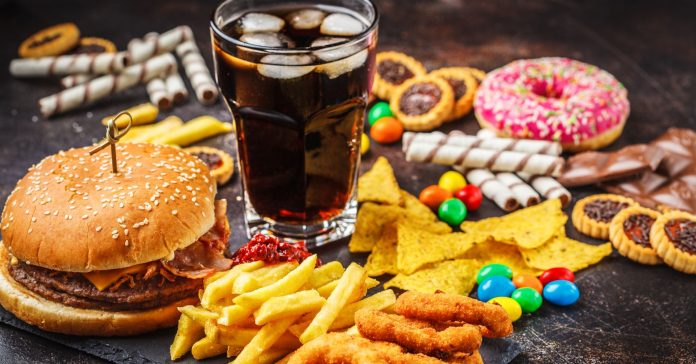Late-night fast-food cravings might need to take a backseat if you want to achieve radiant, healthy-looking skin! What you eat is crucial to your skin’s health, just like your skincare routine. Dermatologists recommend antioxidant-rich foods to brighten, plump, and lock in moisture for a glowing complexion. On the other hand, certain foods can trigger acne, redness, and irritation in some individuals. Read on to find out some of the foods you may want to avoid to maintain clear, vibrant skin.
1. Soft drinks dehydrate and age your skin
Ditch the soda habit for a slimmer waistline and healthier skin! According to dermatologists, both regular and diet soft drinks can lead to skin inflammation. They strongly advise against consuming soft drinks, wishing they could be banned due to their harmful effects. Instead, opt for a refreshing and affordable alternative: fruit-infused soda water! Simply add slices of lemon, lime, orange, or berries to plain soda water for a delicious and skin-friendly drink.
2. Spicy foods can make rosacea worse
Rosacea sufferers may want to skip spicy foods. Foods that cause blood vessels to expand and lead to flushing can trigger rosacea flare-ups. This is supported by a 2017 study published in Dermatology Practical & Conceptual, which found that many people with rosacea experience flushing episodes after consuming spicy foods, alcohol, or hot drinks. So, it’s best to opt for milder options to keep your skin calm and comfortable!
3. Pasta can cause acne-related inflammation
Pasta isn’t the only culprit when it comes to skin issues – refined carbs like white rice, bread, and bagels can also trigger inflammation. These high-glycemic index foods cause a spike in blood sugar, leading to inflammation and acne, according to a 2016 study in the Journal of the American Academy of Dermatology. Sugar is a key driver of inflammation, and managing your glycemic index is crucial to minimise its effects. To do this, focus on a plant-based, whole-food diet, opting for brown rice, whole grain bread, and whole wheat pasta. Additionally, some dermatologists recommend intermittent fasting, which has shown remarkable benefits for skin health. By incorporating periods of voluntary fasting daily, from 16 to 18 hours, you can experience indirect benefits for your skin.
4. Dairy can cause acne
Dermatologists can often pinpoint dairy as the culprit behind a patient’s skin issues. Research, including a comprehensive review published in the Journal of Clinical and Aesthetic Dermatology in 2017, reveals a link between adult acne in women and consuming high-glycemic index foods, as well as cow’s milk – particularly skim milk. According to a cosmetic dermatologist, dairy can trigger inflammation, exacerbating conditions like acne. However, it’s important to note that the connection between dairy and acne specifically applies to cow’s milk, not sheep or goat milk, yoghurt, or cheese.
5. Whey protein shakes can cause acne flare-ups
While protein shakes can be a great way to support muscle recovery after a tough workout, some types of protein may harm your skin. Specifically, whey protein has been linked to acne breakouts, according to a 2017 study published in Health Promotion Perspectives. So, if you’re prone to acne, you may want to consider alternative protein sources or consult with a dermatologist to find a protein powder that won’t trigger skin issues.
6. Potato chips can increase skin inflammation
Have you ever noticed that dermatologists, celebrities, or anyone with flawless skin rarely indulge in processed snacks like potato chips? There’s a reason for that! While the exact link is still being studied, many dermatologists believe that diet plays a significant role in skin health, particularly when it comes to acne. Consuming highly processed foods high in trans fats can lead to glycation, inflammation, and skin breakouts. So, it’s best to steer clear of the snack aisle and opt for whole, nutrient-rich foods instead.
7. Fried chicken can also increase skin inflammation
Fried foods may be a delight to your taste buds, but they’re a nightmare for your skin. Although regulations have significantly reduced the amount of trans fats in foods, these harmful fats still occur naturally and can be added in small amounts, leading to inflammation and negative impacts on your complexion.
8. Sugar can make skin appear more wrinkled
Enjoying the occasional sweet treat is fine, but overconsumption of sugary foods can harm your skin. High-glycemic foods like sugary treats cause a rapid spike in blood sugar, leading to inflammation and glycation. This process can stiffen collagen fibres, resulting in less plump and more wrinkled skin over time.


